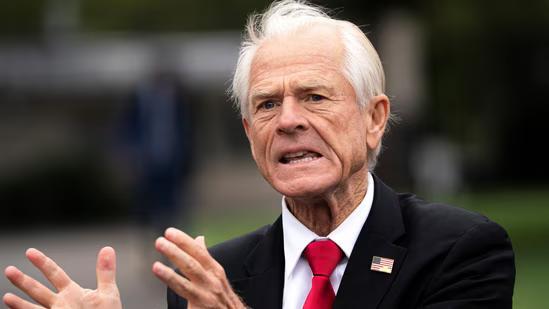
Trump’s Aide Navarro, Who’s Criticizing India, Had Quoted Fake Expert in His Books
Peter Navarro, a key aide to US President Donald Trump, has been making headlines lately for his scathing criticisms of India. In a series of tweets and interviews, Navarro has been slamming India’s economic policies, particularly its decision to impose tariffs on certain American goods. However, Navarro’s credentials have been called into question after it emerged that he had quoted a Harvard-educated expert in his books, only to reveal later that the expert didn’t exist.
Navarro’s books, which focus on China, have been widely criticized for their inaccuracies and lack of credibility. In his 2015 book, “Death by China: Confronting the Dragon – A Global Call to Action,” Navarro quotes a supposed Harvard-educated expert named Ron Vara in several instances. Vara is presented as a leading authority on China’s economy and politics, and his quotes are used to support Navarro’s arguments.
However, it has now been revealed that Ron Vara is not a real person. In an investigation by the Harvard Crimson, the university’s student-run newspaper, it was found that Navarro had fabricated Vara’s credentials and quotes. The investigation found that Navarro had used letters of his own name to create the illusion of Vara’s existence.
Navarro has since defended himself, claiming that the use of the fake expert was an “inside joke” among his colleagues. According to Navarro, he and his team used the pseudonym “Ron Vara” to describe themselves, and the quotes attributed to Vara were actually from Navarro himself. However, many have questioned the integrity of Navarro’s work, given the lack of transparency and honesty in his methods.
The revelation has raised serious questions about Navarro’s credibility as an expert on China and its economy. As a key aide to President Trump, Navarro has been instrumental in shaping the administration’s trade policies, particularly with regards to China. His books have been widely cited by politicians and policymakers, and his quotes have been used to support arguments about China’s economic and political system.
However, the use of a fake expert undermines the credibility of Navarro’s work and raises concerns about the accuracy of his claims. It also highlights the potential dangers of allowing unqualified individuals to influence policy decisions.
The controversy surrounding Navarro’s books has also drawn attention to the lack of transparency and accountability in the publishing industry. How did Navarro’s book, which was widely praised and reviewed in major publications, go unchecked for so long? Why did no one question the credentials of the supposed expert, Ron Vara?
The answer lies in the fact that Navarro’s books were published by a small, independent press, which may not have had the same level of editorial scrutiny as major publishing houses. Additionally, the publishing industry is often driven by sensationalism and controversy, and Navarro’s books fit the bill with their provocative claims about China’s economic and political system.
The controversy surrounding Navarro’s books is also a reminder of the importance of fact-checking and verification in academic and scholarly work. As a society, we rely on experts and authorities to provide us with accurate information and insights, and it is essential that we hold them accountable for their work.
In conclusion, the controversy surrounding Peter Navarro’s books raises serious questions about the credibility of his work and the integrity of the publishing industry. As a key aide to President Trump, Navarro’s views on India and China have significant implications for global trade and economic policy. It is essential that we hold him accountable for his actions and ensure that his work is subject to rigorous scrutiny and verification.



